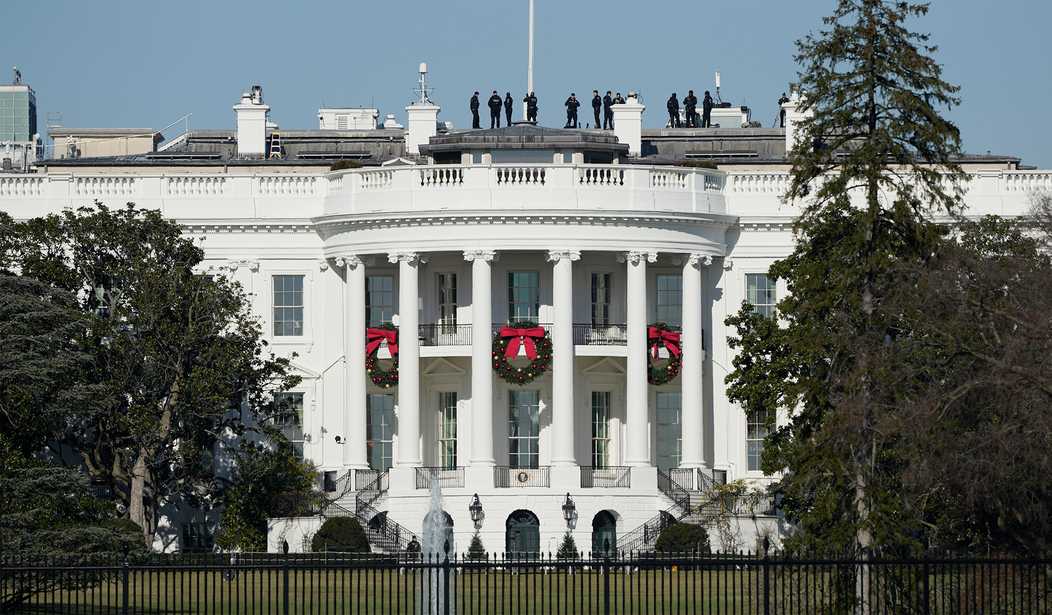It seems like ages ago when news reports informed the nation that cocaine had been found somewhere in the White House. We all made the obvious jokes about Hunter Biden and Black Hillary, AKA Vice President Kamala Harris. But the matter is still in the news. In fact, the Secret Service claims it could not identify the snorter of the white powder in the president’s residence.
Of course, many are calling BS on this claim, including conservative commentator and Former Secret Service agent Dan Bongino, who suggests that the agency may be pressured by the White House to avoid identifying the culprit, raising concerns about transparency and accountability.
During a recent interview, Bongino spilled the tea on what some Secret Service agents think of the matter:
According to Dan Bongino, a former Secret Service agent with many connections within the agency, the rank and file aren’t happy about the result.
…
BONGINO: So there’s probably less than 200 people who could have left this cocaine, by the way, in a bag which is plastic, which is non-porous, meaning it’s probably not that hard to pull a latent print. They’ve got to know who did it. The question who’s pressuring them to not find out who did it? And it’s gotta be coming from this White House. This is terrible. Don’t destroy this agency like the FBI. It’s really unbecoming.
A lot of my former colleagues at the Secret Service who retired, they are absolutely furious about this. Oh yeah, yeah, I can tell you, I got 50 emails, communications, texts from people. “This is embarrassing, humiliating.” These are good guys, man, guys who worked for Obama and Bush, non-partisan guys, most of them aren’t even political. This is embarrassing, they know exactly who it was.
OLOHAN: So do these people want it come out that it was probably Hunter Biden?
BONGINO: Well, you know, the question is whether it was Hunter or one of his friends. But like here’s the thing. I’m in the Secret Service for 12 years, a good amount of times. We never had this problem. So nobody, by Occam’s razor, right, the process of deduction, keep it simple stupid, Occam’s razor. You’ve got this guy, we never found coke in there before. You’ve got a dude who’s doing coke on tape, who’s got a reputation for being a coke addict. He’s living in the White House. He’s there on Friday. The coke’s found there on Sunday, and everybody is like, “Gosh, who could it be.”
.@dbongino weighs in on the White House cocaine mystery: "A lot of my former colleagues in the Secret Service…they are absolutely furious about this….These are good guys, guys who worked for Obama and Bush…they know exactly who it was." pic.twitter.com/6Mt0r5jc9K
— Mary Margaret Olohan (@MaryMargOlohan) July 16, 2023
During an episode of “Fox News Sunday,” White House aide John Kirby defended the handling of the inconclusive investigation into cocaine found in the White House’s West Wing, stating that the Secret Service did their best to track down the source and take the matter seriously.
Anchor Shannon Bream brought up the issue, noting other times when marijuana was found in the White House. The host then asked about the fact that it only took the authorities two weeks to close the cocaine case.
Kirby responded:
“I can’t really speak to the investigation done by the Secret Service. They did the best they could to track down how it got there and who it might belong too. They just we’re not able to come up with any forensic evidence that proves it. But of course we take this seriously. This is not the kind of thing we want to see happen. It did happen to the visitors lobby area just outside the main West Wing. It is a highly trafficked area. We are going to take a look at how that happened and if there are things we could do to prevent that in the future we will certainly do that. No one is happy about this.”
The recent discovery of cocaine in the White House has left many questions unanswered and the distinct odor of bovine excrement wafting in the atmosphere of American politics. Despite various claims and speculations, the truth remains elusive, and we may never know who was responsible for bringing the “illicit” substance into the corridors of power. However, rather than fixating on the identity of the culprit, perhaps we should use this story as a stark reminder of the corruption that plagues our federal government.
The fact that this incident is shrouded in secrecy and covered up only reinforces the notion that it could have been the possession of someone within the ruling class with ties to those in power. The disparity in how such cases are handled and disclosed raises concerns about the transparency and accountability of our political institutions. The idea that this incident could be so easily swept under the rug further emphasizes the reality that the elites live under a much different justice system from the rest of us.
Beyond the mystery of the cocaine’s origin, we must address the stark contrast in how our legal system treats drug-related offenses. Countless individuals, predominantly from disadvantaged communities, have been subjected to harsh and punitive measures for mere possession of controlled substances. The war on drugs, which promised to eradicate drug abuse and trafficking, has proven to be a colossal failure, leading to the incarceration of thousands, particularly people of color, without effectively curbing drug usage or distribution. In essence, it has ruined more lives than drug use has.
In light of this White House incident, we are faced with a disturbing reality: those in positions of influence and power often escape the full force of the law while others, less privileged, suffer disproportionately. Such hypocrisy underscores the urgent need for comprehensive drug reform policies that prioritize harm reduction, treatment, and education over measures designed to make us feel as if something is being done about drug addiction without actually doing much good.
If we genuinely care about justice and equality, we must recognize that our current approach to drug enforcement perpetuates systemic injustice and social inequality. It is high time to shift our focus from punitive measures to rehabilitative and supportive strategies for individuals struggling with substance abuse.














